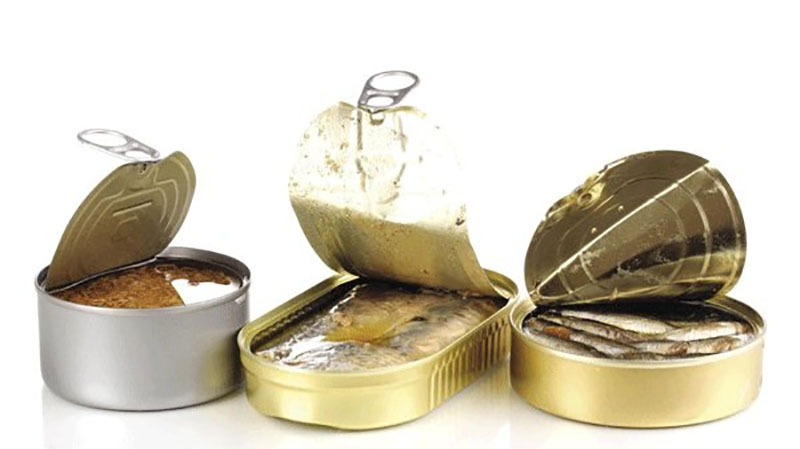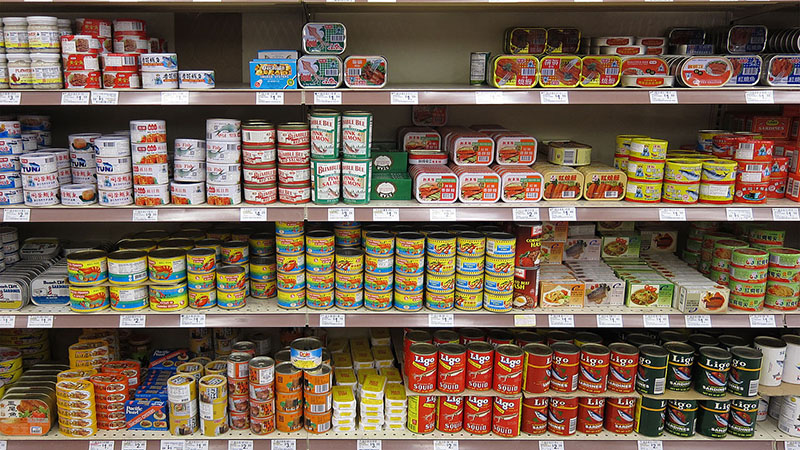Canned Food: What Is It and How Does It Work?
Canned food is a method of preserving food for extended periods. The canning process involves processing, sealing, and heating the food, which can then be safely stored for 1-5 years or even longer.
Canned foods include a variety of options such as fruits, vegetables, beans, meat, fish, and seafood.

Potential Health Risks of Canned Food
Despite the convenience of canned food, there are potential health risks associated with its consumption. These risks can vary depending on the amount consumed, and the consequences can be detrimental to one’s health.
Impact of Additives and Preservatives:
– To preserve canned food, manufacturers must use additives and preservatives within permitted levels.
– However, with the wide variety of canned foods available in the market, many products use preservatives and additives of unknown origin and without proper labeling.
– Additionally, canned food often contains high levels of salt and sugar. For individuals with heart conditions, obesity, or diabetes, the salt and sugar content in canned food can aggravate their health issues.
Metal Can Liners and BPA Contamination
– Metal can liners can leach into the food, especially if the food is acidic or fatty. This can lead to a rapid absorption of metal into the body.
– Metal in the body can hinder the liver’s ability to detoxify and reduce the absorption of essential minerals, causing harm.
BPA Exposure:
– Bisphenol-A (BPA) is commonly found in canned food. Research indicates that BPA can leach from the can into the food.
– A study showed that consuming one canned food item per day for five consecutive days increased BPA levels in urine by 1,000%.
– While the evidence is not conclusive, BPA is suspected to be linked to cardiovascular disease, type-2 diabetes, and erectile dysfunction.
– Pregnant women should avoid canned food during the first month of pregnancy as prolonged and excessive consumption may lead to miscarriage or birth defects.
Limited Nutritional Value:
– Canned food often loses a significant portion of its nutritional value during the canning process, particularly water-soluble vitamins like Vitamin C and Vitamin B.
– While proteins, fats, minerals, and fat-soluble vitamins like Vitamins A, D, E, and K remain, they are not as nutritious as fresh food.

Tips for Safe Consumption of Canned Food
Choosing and Storing Canned Food
– Avoid purchasing canned food that is less than a month away from its expiration date.
– Always check the information on the can, including nutritional value, ingredients, storage instructions, manufacturing and expiration dates. Opt for low-sodium or sodium-free options.
– Do not purchase cans with damaged, open, or deformed packaging, or with unclear or missing information.
– Avoid cans that are swollen or have deformed lids.
– Choose canned food from reputable brands, purchased from reliable stores or supermarkets. Avoid products of unknown origin.
Handling Opened Canned Food
– Once a can is opened, its contents should be consumed within a short period as bacteria can contaminate the food.
– Store opened cans in the refrigerator and consume the food within 24 hours.
Preparing and Eating Canned Food
– Contrary to popular belief, canned food should be boiled and thoroughly cooked before consumption.
– When eating canned meat, accompany it with fresh fruits and vegetables to add vitamins and fiber to your meal.
– Do not directly heat canned food at temperatures of 70-80°C as the metal can may melt and leach into the food. Instead, transfer the contents to a pot and heat it on a stove.
Pregnant Women and Children Should Limit Consumption
– Due to their reduced nutritional value, canned foods should be limited for children. Pregnant women should refrain from consuming canned food altogether.
– For safety, consume canned food no more than once or twice a month.

Canned food can be a nutritious alternative when fresh food is unavailable. Many canned food options provide essential nutrients and are highly convenient. However, it is crucial to choose reputable brands and carefully read the labels to avoid harmful ingredients.
“How to Keep Fresh Flowers Arranged for Up to 3 Days Without Overwatering”
It’s almost that time of year again – Tết! As you adorn your home with gorgeous and vibrant flowers, you may be wondering: how do I make sure they stay fresh for as long as possible? If you’re not familiar with the right care techniques, your flowers can fade and start to wilt in as little as one or two days. Don’t worry though, we have some tips here to help keep your flowers looking beautiful for the duration of the festive season!



































